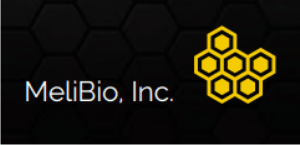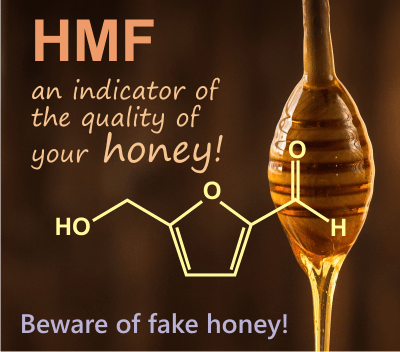Again about fake honey. Not adulterated honey, nor artificial honey, just a kind of future honey made by humans, without the involvement of bees.
Somehow, we got used to blaming the Chinese for everything. But the truth is all nations are trying to fake natural products, believing that we need to reinvent the means of production in order to have a sustainable planet.
A sustainable planet.
Wondering why all the chemicals, the fakes, the diseases, the conspiracies, the struggle for power? Why all the puzzling things that seem irrational and illogical? Here is the answer: a sustainable planet.
MeliBio is honey not made by bees.
Is this fake honey or future honey? Or both?
You won’t think it’s a bad thing, after all, it contains the word “bio” in its name. And “bio” is connected with life and living things. Nothing to worry about. (I’m just being ironic, of course!)
Darko Mandich, a Serbian bee industry executive, and Aaron Schaller, a molecular scientist from the University of Cal Berkeley, created MeliBio. Here, they are using microbial fermentation and synthetic biology to create honey. It mimics the process a bee takes to create honey and will use real flower nectar. The end product will contain small amounts of the amino acids, minerals and enzymes found in real honey.

Their slogan: Better for humans. Better for bees.
What is Mellody honey?
Mellody is a plant-based honey, made without bees, represents the first plant-based honey that tastes and performs just like the original – but better!
Mellody® is produced using fructose, glucose, and a range of plant extracts including: red clover, jasmine, passionflower, chamomile, and seaberry, among other ingredients.
It has the same floral, bright, and sweet flavor and sticky, drippy, and thick texture as honey produced by bees, but is 100% vegan and glyphosate-free. Because it’s a plant-based product, it helps protect native pollinators and encourages biodiversity.
But has it really the same composition of honey? Does it have the same therapeutic benefits? Or we will simply forget our honey even had them? Is this the future we want?
But why?
Why do we need honey that is not made by bees?
Some say the relationship between humans and honey bees has become toxic. The European honey bee (Apis mellifera) is invasive in North America and detrimental to native wild bees. And the regular natural honey found in supermarkets is far from being as healthy as preached.
European honey bees are bad for native wild bees.
They are worse pollinators than some of them (sweat bee, mason bee, miner bee and bumble bee). Apis mellifera has a selective foraging behaviour, avoiding plants that lack nectar (or is less sweet) thus leaving the plants unpollinated.
They forage much earlier than most bees, stay longer on the flowers and leave no nectar, and are more aggressive (some of the wild bees don’t even have a sting).
Due to migrations, trucks containing up to 10,000,000 bees can move for thousands of miles, but the honey bees will also transport pathogens. It is said that honey bees can carry and transmit up to 20 viruses, 6 parasites and 4 bacterial and fungal pathogens. Wild bees are sure victims to them.
And besides being taken the food and killed, wild bees are also victims to pesticides, climate change, pollution and radiation.
Raw natural honey is not safe. 😯
The raw honey that is sold today is only this: raw. Because much of it contains traces of heavy metals, pesticides, antibiotics. More and more researchers say it’s very hard to obtain organic honey on this planet any more.
Besides, beekeeping is hard work. Due to colony collapse disorder it has become even harder and more expensive to do this job.
People are adulterating it to gain profit. And this is also dangerous for the population. Why not invent something equally tasty, less invasive, and safer?
 For pollination, scientists have already found solutions. Robot bees.
For pollination, scientists have already found solutions. Robot bees.
If eating chemical food is the future of humanity, then I declare myself against evolution. It sounds funny, like declaring myself against the sunrise or life itself. And while I am well aware that my words mean nothing in the bigger picture, I insist on saying that we are facing an involution of humanity and an evolution of a new robotic species. This seems to be the only way to “a sustainable planet”!
Vegans can be happy. They will be eating honey without any animal interference.
I don’t understand vegans!
Why do they refuse to eat animals? Because they are leaving creatures? But aren’t plants living as well? Aren’t they eating, drinking, breathing, growing and dying?
And why refusing to eat honey that was made by bees? They didn’t kill the plant. Only ate what was made for them from the start: the nectar.
Other foods that are animal-free
Cheese
That’s no news, we already have tasty vegan versions of yogurt, milk, butter and ice cream. There is a problem with cheese, apparently, because its taste is quite hard to replicate.
But nothing to worry about. Humans are smart enough to beat it!
New Culture, a New Zealand-based company that relocated to Silicon Valley, is trying to make an animal-free cheese that tastes just as good as the real thing. But instead of turning to plants, they’re using biotechnology to reverse engineer cheese’s main ingredient: milk.
Milk is made up of water, fats, sugars (lactose) and proteins (casein + whey). Without casein, it’s really, really hard to make a cheese that tastes, cuts, and melts like the real deal. And there aren’t any plant-based options that can mimic casein well enough to fool anyone.
But the company uses genetically modified microbes — like yeast — and “trains” them to produce certain proteins, like casein. The team then adds water, plant-based fat, sugar, and minerals to the casein, which creates something that acts and tastes a lot like milk.
Then, here comes mozzarella, called by some “the gold standard of cheese”, which doesn’t have a whole lot of flavor to hide behind.
Perfect Day, a Berkeley-based startup, is also creating milk proteins in a lab by creating casein and whey with genetically modified microbes.
Why are we inventing cheese again? Why do we need dairy-free cheese?
According to Research and Markets, consumer demand for plant-based dairy is on the rise and the global dairy alternative market is projected to reach $26 billion by 2023. And the old problem of too many people asking for too much meat.
Egg from plants!
Evo. A company from India that is working at a plant-based egg product. The company uses cutting edge food technology to invent plant based substitutes to animal products.
Meat from plants!
This is quite old. There are so many companies working at this. Here are a few: Novel Farms (USA), Zhenmeat (China), WTH Foods (The Philippines), Gaia (Singapore), Fenn Foods (Australia).
As you can see, China is wrongly seen as a default escaping goat.
Related article:
•Organic honey vs regular honey
• What is artificial honey or fake honey? What we have in our food!
• Fake honey! Do you really know what you’re eating?
References:
New-culture-is-developing-creamy-mozzarella-cheese-without-the-cow
Meet the 13 Companies Chosen for Cohort II of Big Idea Ventures’ Alt-Protein Accelerator
https://robots.ieee.org/robots/robobee/



